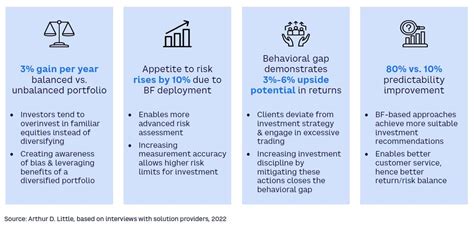The Future of Behavioral Finance in Crypto: How Artificial Intelligence Is Revolutionizing the Industry
As the world of crypto continues to grow and evolve, two key aspects are gaining increasing attention: behavioral finance and artificial intelligence (AI). The two fields have long been intertwined, but recent advancements in AI technology are revolutionizing the way we think about market behavior, risk management, and investment strategies. In this article, we will explore how AI is transforming the field of behavioral finance in crypto.
What is behavioral finance?
Behavioral finance is a branch of economics that studies how psychological and social factors influence financial decision-making. It recognizes that investors make decisions based on emotions, biases, and heuristics rather than rational calculations. Behavioral finance has been instrumental in shaping the cryptocurrency market, especially in terms of price volatility.
The Role of AI in Behavioral Finance
Artificial intelligence is increasingly being used to analyze large amounts of data related to investor behavior, market trends, and economic indicators. Using machine learning algorithms, AI can identify patterns and anomalies that may signal impending market crashes or booms. This knowledge is then fed into predictive models that serve as the basis for investment strategies.
A notable example is the use of natural language processing (NLP) in social media analytics platforms. These platforms monitor online sentiment toward specific cryptocurrencies, identifying potential risks and opportunities based on public opinion and social media conversations. For example, a platform that analyzes cryptocurrency trends could highlight warning signs, such as a sudden price surge, that could indicate a speculative bubble is about to burst.
The Impact of AI on Cryptocurrency Trading
AI is changing the way marketers approach their work. By automating routine tasks like data analysis and risk management, investors can focus more on high-level decision-making. This increased efficiency has led to:
- Improved Risk Management: AI-powered systems can analyze large amounts of market data in real-time and identify potential risks and opportunities that traders might otherwise miss.
- Augmented Decision-Making: By leveraging machine learning algorithms, traders can make more informed decisions based on data-driven insights rather than relying on emotions or intuition.
- Increased Scalability: Artificial intelligence allows traders to scale their operations much faster than they could using traditional methods. This is especially important in the cryptocurrency market, where trading volumes are extremely high.
Real-World Applications of AI in Behavioral Finance

Several companies and research institutions are already using AI to develop more effective behavioral finance strategies for cryptocurrencies:
- CoinTracking – a Switzerland-based company that uses AI-powered sentiment analysis to help investors track cryptocurrency trends and predict price movements.
- CryptoSpectator
– an AI-powered platform that analyzes cryptocurrency news, social media conversations, and market data to provide traders with actionable insights.
- Binance Labs – the research arm of popular cryptocurrency exchange Binance is exploring ways to use AI-powered techniques, such as natural language processing and machine learning, to improve its trading algorithms.
Challenges and future directions
While AI has shown great promise in the realm of behavioral finance, there are still challenges to overcome:
- Data quality: Ensuring that AI models can accurately capture complex psychological factors such as emotions and biases remains a major challenge.
2.